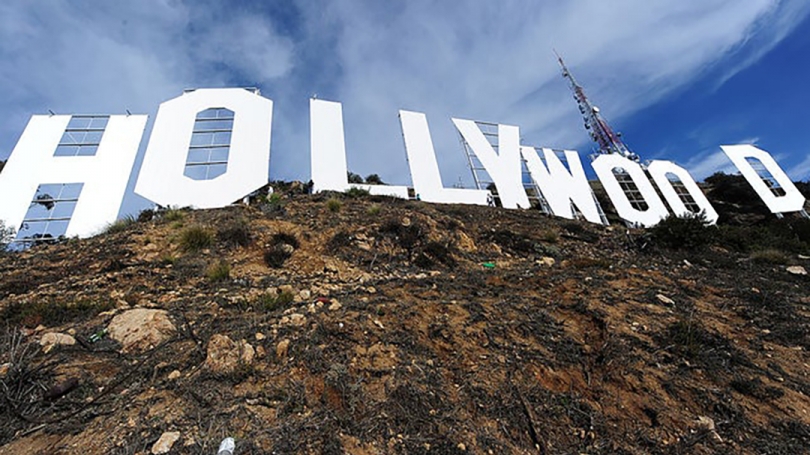
- Undergraduate
- Onstage
- Opportunities
- Foreign Study
- News & Events
- People
Back to Top Nav
Back to Top Nav
Back to Top Nav
Back to Top Nav
By Monica White Ndounou, opinion contributor — 07/31/19 11:02 AM (The views expressed by contributors are their own and not the view of The Hill)
Article published on The Hill.com
With the recent announcement of the Emmy nominations, it’s clear that Hollywood still hasn’t fixed its diversity problem. It’s disappointing, but not surprising to find that this year’s nominees include only 24 acting nominations for people of color, a significant decrease from the record 38 nominations last year. While there was several notable nods for Mahershala Ali, Viola Davis, Cicely Tyson and Phylicia Rashad, actors of color were still shut out of numerous categories, including lead actress in a Comedy.
Such outcomes are indicative of the “white problem” Whitney Davis identified in a recent Variety article about CBS. Davis, a black woman and producer, hoped the sexual harassment investigation that exposed the toxic, sexist company culture at CBS would also illuminate the patterns of racial discrimination she and others experienced behind the scenes.
This problem, a “broken system” that works by design to promote the interests of white men, extends beyond CBS and the Emmys and is actually perpetuated by higher education. In fact, the hiring patterns and industry practices Davis has described reflect patterns throughout the American theater and film industries and the academic institutions that serve as pipelines into careers throughout the profession. Higher education’s Eurocentric and male-centric curriculum, especially in the dramatic arts, also shapes industry insiders and audiences’ attitudes about what constitutes an award-worthy performance.
Professor, actor, director and teaching artist Stephen Buescher’s lawsuit against the American Conservatory Theatre (ACT) is one of the most recent examples of this problem in higher education. The lawsuit alleges patterns of institutional racism against black faculty and black and brown students. Racial profiling by campus security, micro-aggressions in classes and rehearsals and rejection of culturally specific core curriculum and productions all limit opportunities to study the craft of performing. And it distorts how people view culturally specific, non-white material. The problems Davis and Buescher describe are more likely to be resolved by simultaneously addressing how whiteness is prioritized throughout higher education and the entertainment industry.
Buescher’s experiences are quite commonplace throughout academia. Such problems were revealed when the CRAFT Institute, a nonprofit I founded to help overhaul formal training programs and bridge academia and the entertainment industry, was enlisted to organize panels and workshops for the Association for Theatre in Higher Education’s (ATHE) 2018 annual conference. My collaborator, Nicole Hodges Persley, and I participated in a public conversation with theatre practitioners, educators and leaders of professional organizations followed by a workshop we taught addressing the challenges of implementing equity, diversity and inclusion in curriculum, the play selection processes that culminate into the academic program’s season, rehearsals and productions as well as departmental and campus culture.
The workshop revealed three different approaches to the problem:
1) Denial or refusal to show up or offer solutions.
2) Recognition of the problem yet unequipped to fix it.
3) Awareness and engagement usually by faculty of color who continue to be marginalized and exploited in their departments or at their institutions.
Some programs address select issues, but more work is needed. For example, Brown University offers a tuition-free MFA Acting program in order to attract underrepresented groups. The Yale Drama School requires diversity training for all faculty, staff and students. Yet a sporadic change at a handful of institutions does not disrupt the repetition and impact of the race and gender ideology embedded in Eurocentric and male-centric storytelling, curriculum and industry practices.
When the Black Panther cast won the Screen Actor’s Guild Award for Best Cast in a Motion Picture, Chadwick Boseman’s acceptance speech addressed the question of whether the film’s success and critical acclaim will change the industry. The Ryan Coogler-directed comic-book film later won three Academy Awards out of six nominations.
Notably, the film did not receive any nominations in acting categories despite the fact that the principal actors’ role preparation required them to learn material and practices not typically taught in the majority, Stanislavski-based mainstream formal actor training programs throughout the United States. This included speaking African languages like Xhosa and a range of African diaspora accents; a variety of movement, including African dance and martial arts like Capoeira; and the exploration of complex narratives focusing on black experiences like the relationship between African Americans and continental Africans due to the history of slavery and colonization. The lack of recognition for the unusual amount of extra effort black actors has to engage in order to prepare for, and access such infrequent opportunities, is an appalling example of the persistent inequities throughout their training and careers.
Still, higher education programs in the dramatic arts and the entertainment business can do a better job educating future leaders and artists. Providing opportunities to train and perform in a range of culturally specific methods and roles, like those used in Black Panther, along with teaching material that exposes and eradicates the ideology that contributes to the exclusionary practices that Davis and Buescher describe is a mutually beneficial arrangement that can usher in necessary, structural changes throughout the industry.
Simultaneously recognizing and nurturing black talent in higher education and the entertainment industry and increasing the range and depth of stories will expand roles for black actors, promote opportunities for career advancement, and help bridge the divides perpetuated by this broken system.
Monica White Ndounou is an associate professor of Theater at Dartmouth College. She is the author of the award-winning book "Shaping the Future of African American Film: Color-Coded Economics and the Story Behind the Numbers" (Rutgers UP 2014) and convener of The 2018 International Black Theatre Summit held at Dartmouth College in collaboration with The CRAFT Institute.